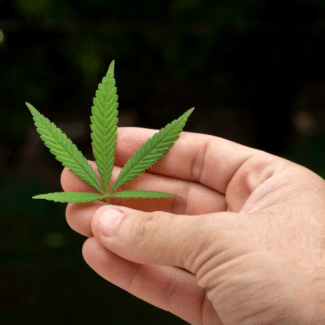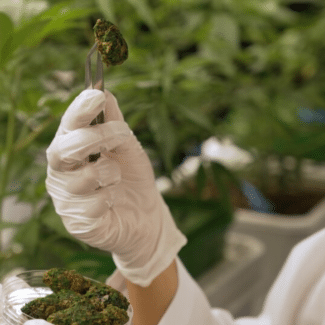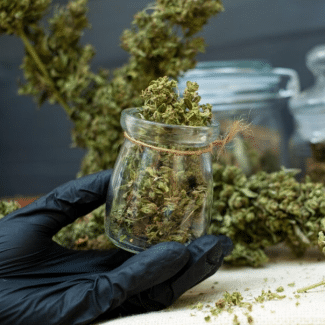Opening a dispensary in Maryland in 2023 offers a unique opportunity to capitalize on the state’s thriving cannabis industry.
With the legalization of medical marijuana in 2014 and the subsequent decriminalization of recreational use in 2021, Maryland has become a promising market for cannabis entrepreneurs.
According to the Maryland Medical Cannabis Commission, there were over 153,000 registered medical marijuana patients in the state. Also, the cannabis market in Maryland is projected to reach $1 billion by 2024, as reported by Marijuana Business Daily.
These statistics highlight the immense potential for success in the Maryland dispensary business.
Overview of Cannabis in Maryland
Cannabis in Maryland is legal for both medical and recreational use. The state has a growing number of registered medical marijuana patients and a thriving cannabis market.
History of Cannabis Legalization in Maryland
The journey towards cannabis legalization in Maryland has been marked by significant milestones. In 2014, the state took its first step by legalizing medical marijuana with the passage of House Bill 881. This allowed patients with qualifying conditions to obtain medical cannabis through licensed dispensaries.
Subsequently, in 2017, the state expanded its medical program with Senate Bill 949, adding more qualifying conditions and increasing patient access.
Then, in 2021, Maryland decriminalized recreational use of cannabis with the passage of Senate Bill 708, allowing individuals to possess and cultivate limited amounts of marijuana for personal use.
These legislative developments have paved the way for the flourishing cannabis industry in Maryland.
Current State of the Cannabis Market in Maryland
According to the Maryland Medical Cannabis Commission, there were more than 153,000 registered medical marijuana patients in the state.
The market has seen a substantial increase in sales, with reported total sales of over $500 million since the launch of the medical program.
The industry has created jobs, with over 4,000 individuals employed by licensed cannabis businesses in Maryland. These figures demonstrate the robust demand for cannabis products and the positive economic impact of the industry in the state.
Social Equity Programs for Cannabis in Maryland
Maryland has implemented social equity programs within its cannabis industry to address the historical impact of the War on Drugs. These programs aim to provide opportunities for individuals from communities disproportionately affected by marijuana prohibition.
They include initiatives such as prioritizing licenses for equity applicants, providing technical assistance, and promoting diversity and inclusion within the industry.
Types of Dispensary Licenses in Maryland
In Maryland, there are several types of dispensary licenses available for cannabis businesses. These include Class “A” licenses for dispensaries with a maximum of three locations, Class “B” licenses for dispensaries with more than three locations, and Class “D” licenses for dispensaries located in an area lacking access to medical cannabis.
In Maryland, there are three types of dispensary licenses available:
- Stage One License: This is a preliminary license that allows the holder to begin the process of establishing a dispensary. It includes site selection, facility design, and obtaining necessary approvals.
- Stage Two License: Once the Stage One License requirements are met, the licensee can apply for a Stage Two License. This license enables the operation of a fully functional dispensary.
- Pre-Approved Dispensary License: These licenses are issued in areas where there is a need for additional dispensaries to enhance patient access. Pre-approved licenses are granted to qualified applicants without the need for a competitive application process.
Understanding the Cannabis Market in Maryland
The cannabis market in Maryland has experienced significant growth and evolution since its legalization. With a population of over 6 million people, the state offers a substantial consumer base.
The market has seen a rise in the number of licensed dispensaries, creating increased accessibility for patients and consumers. Maryland’s cannabis industry has contributed to job creation and economic growth, with over 4,000 individuals employed by licensed cannabis businesses.
The evolving regulations and growing market make Maryland an attractive destination for cannabis entrepreneurs and investors.
Application Process for a Dispensary License
The application process for obtaining a dispensary license in Maryland involves several steps and requirements to ensure compliance with the state’s regulations and guidelines.
Steps Involved in Obtaining a License
The steps involved in obtaining a dispensary license in Maryland typically include the following:
- Research and Planning: Familiarize yourself with the state’s regulations, market conditions, and local zoning laws.
- Business Formation: Establish a legal entity, such as an LLC, and obtain any necessary licenses or permits.
- Develop a Business Plan: Create a comprehensive business plan outlining your operational and financial strategies.
- Application Submission: Prepare and submit a detailed application to the Maryland Medical Cannabis Commission (MMCC) during the designated application period.
- Background Checks: Undergo background checks for all key individuals involved in the business.
- Facility and Security Requirements: Identify a suitable location that meets the state’s requirements for dispensaries and implement robust security measures.
- Financial Requirements: Demonstrate financial stability, including proof of funds and investment capital.
- Compliance and Training: Ensure compliance with all regulations and complete any required training programs.
- Review and Approval: The MMCC evaluates applications based on various criteria and awards licenses to successful applicants.
- Operational Readiness: Once licensed, fulfill any remaining requirements, such as obtaining product inventory and hiring staff, before commencing operations.
Required Documentation for a License
The required documentation for a dispensary license application in Maryland may include:
- Completed application form
- Business plan
- Financial statements and proof of funds
- Security plan
- Site plan and lease agreement
- Floor plan and layout of the proposed dispensary
- Certificate of good standing for the business entity
- Operating procedures and policies
- Inventory control plan
- Product quality and testing plan
- Patient education plan
- Employment and training plan
- Background checks and fingerprints for key individuals
- Evidence of compliance with local zoning and land use requirements
- Insurance coverage proof
- Surety bond
- Tax clearance certificates
- Any other supporting documentation as specified by the Maryland Medical Cannabis Commission (MMCC).
Timelines for Obtaining a License
The timelines for obtaining a dispensary license in Maryland can vary depending on various factors, including the complexity of the application and the regulatory review process.
While it’s important to consult the Maryland Medical Cannabis Commission (MMCC) for the most accurate and up-to-date information, it’s worth noting that the process typically takes several months.
From the initial application submission to the final approval, it can range anywhere from six months to over a year.
Factors such as the number of applications received, the thoroughness of the application, and any potential delays in the review process can influence the overall timeline for obtaining a license.
Financing and Business Plan for a Dispensary
Securing financing and creating a solid business plan are crucial steps when starting a dispensary. This ensures financial stability and a clear roadmap for success in the cannabis industry.
Types of Financing Available
When preparing a business plan for a dispensary, it should typically include an executive summary, company description, market analysis, marketing strategy, financial projections, operational details, compliance measures, and contingency plans.
The plan should be comprehensive, showcasing the understanding of the market, competitive advantage, and the ability to navigate regulatory challenges.
- Personal Funds: Utilizing personal savings or investments is a common way to finance a dispensary. It allows for full control and ownership but may require significant upfront capital.
- Traditional Bank Loans: Some financial institutions may offer loans for cannabis businesses, especially if the business has a strong financial history, collateral, and meets specific criteria. However, accessing traditional loans can be challenging due to federal regulations and the cannabis industry’s perceived risk.
- Private Investors: Seeking funding from private investors, such as angel investors or venture capitalists, can provide capital in exchange for equity or a return on investment. These investors may specialize in cannabis or have an interest in the industry.
- Crowdfunding: Online platforms allow entrepreneurs to raise funds from a large number of individuals who contribute smaller amounts. However, it is essential to ensure compliance with crowdfunding regulations.
- Cannabis-Specific Lenders: Some financial institutions and private lenders specialize in providing loans to cannabis businesses. These lenders are familiar with the industry’s unique challenges and may have more flexibility in their lending criteria.
- State and Local Programs: Some states offer grants or low-interest loan programs to support social equity or minority-owned cannabis businesses. Researching available programs in Maryland can provide additional financing options.
Importance of a Solid Business Plan
A solid business plan is crucial for a dispensary for several reasons. It provides a roadmap for the business, outlining its goals, strategies, and operational details. It also helps in identifying target markets, understanding competition, and defining marketing strategies.
It will also assist in securing financing by demonstrating the viability of the business and potential return on investment. The plan serves as a reference point for decision-making, allowing the business to adapt to changes in the market or regulatory environment.
Besides, a business plan instills confidence in stakeholders, including investors, partners, and regulatory agencies, showcasing the owner’s commitment and preparedness for running a successful dispensary.
Risk Management Plan
A risk management plan is essential for a dispensary to identify, assess, and mitigate potential risks that could impact the business’s operations and success. It involves a systematic approach to proactively anticipate and address risks.
This includes identifying regulatory compliance risks, security risks, financial risks, supply chain risks, and operational risks. The plan should outline strategies and protocols to minimize and respond to these risks effectively.
By implementing a robust risk management plan, a dispensary can enhance operational resilience, protect its reputation, ensure compliance with laws and regulations, maintain a safe and secure environment, and mitigate potential financial losses.
Market Research and Location for a Dispensary
Thorough market research is essential for selecting an optimal location for a dispensary. It helps identify target demographics, competitor analysis, and evaluate factors like accessibility, local regulations, and customer demand.
Overview of the Maryland Market for a Dispensary
The Maryland market for a dispensary presents a promising opportunity for entrepreneurs. With a growing number of registered medical marijuana patients and the potential for future expansion into recreational use, the market offers a sizable customer base. However, careful consideration of local regulations, competition, and market saturation is crucial for success in this evolving industry.
Trends and Competition in the Maryland Cannabis Industry
The Maryland cannabis industry is characterized by ongoing trends and increasing competition. One notable trend is the diversification of product offerings, with a focus on innovative cannabis products such as edibles, concentrates, and topicals.
Another trend is the emergence of premium brands that prioritize quality and consumer experience. As the market grows, competition among dispensaries and cannabis businesses has intensified, leading to the need for differentiation through product selection, branding, customer service, and strategic marketing.
Adapting to evolving consumer preferences and staying ahead of the competition are crucial for success in the dynamic Maryland cannabis industry.
Location Requirements for a Dispensary
The exact location requirements for a dispensary in Maryland may vary based on local regulations and zoning restrictions. However, there are some general guidelines to consider:
- Distance from Sensitive Areas: Dispensaries must be located at least 1,000 feet away from schools, including primary and secondary schools.
- Zoning Restrictions: Dispensaries must comply with local zoning laws and may be limited to specific zones or areas designated for commercial or industrial use.
- Security Measures: Dispensaries are required to have adequate security systems, including surveillance cameras, alarms, and secure storage areas.
- Accessible Location: Dispensaries should be easily accessible to patients and customers, considering factors such as parking availability and public transportation access.
Insurance Requirements for a Dispensary
Insurance coverage is crucial for protecting a dispensary from various risks. Specific insurance requirements for a dispensary in Maryland may vary, but certain types of coverage are generally recommended.
Types of Policies Required
While the specific insurance requirements for a dispensary in Maryland may vary, several types of policies are generally recommended to protect the business. These include:
- General Liability Insurance: Provides coverage for third-party bodily injury, property damage, or personal injury claims arising from the dispensary’s operations.
- Product Liability Insurance: Covers liability for injuries or damages caused by the products sold by the dispensary.
- Property Insurance: Protects the dispensary’s physical assets, including the building, equipment, inventory, and fixtures, against damage or loss due to covered events like fire, theft, or vandalism.
- Workers’ Compensation Insurance: Required by law in most states, it provides coverage for medical expenses and lost wages for employees injured on the job.
- Cyber Liability Insurance: Safeguards against data breaches, cyberattacks, and other cyber risks, protecting sensitive customer information.
- Business Interruption Insurance: Covers loss of income and necessary expenses in the event of a covered incident that interrupts the dispensary’s operations.
Coverage Limits
The coverage limits for insurance policies required for a dispensary in Maryland can vary depending on factors such as the size of the business, the value of assets, and the potential risks involved.
It is recommended to consult with an insurance provider to determine appropriate coverage limits based on individual business needs and risk assessment.
Costs Associated with Insurance
The costs associated with insurance for a dispensary in Maryland can vary depending on several factors, including the size of the business, coverage limits, location, risk assessment, and the insurance provider itself.
Premiums are typically influenced by the level of risk associated with the industry, such as product liability and security concerns.
While specific cost figures are not available, it is advisable to reach out to insurance providers specializing in cannabis industry coverage to obtain quotes and determine the specific costs based on the unique characteristics of the dispensary and its operations.
Costs of Opening and Running a Dispensary
The costs of opening and running a dispensary can vary significantly based on factors such as location, size, operational scale, regulatory compliance, staffing, inventory, marketing, and security requirements.
License and Permit Fees
The license and permit fees for opening a dispensary in Maryland can vary depending on the specific license type and other factors. As of my knowledge cutoff in September 2021, the following are some approximate fee ranges:
- Stage One License Application Fee: $2,000 to $10,000.
- Stage Two License Application Fee: $40,000 to $200,000.
- Dispensary License Renewal Fee: $2,000 to $6,000 (annual).
Note: Please note that these figures are approximate and subject to change.
Startup Costs
While specific figures can vary, the estimated startup costs for a dispensary typically range from $250,000 to $2 million or more.
These costs include licensing fees, facility build-out or leasehold improvements, security systems, compliance measures, inventory, marketing and branding, employee salaries and training, insurance, legal and consulting fees, and other operational expenses.
Ongoing Costs
The ongoing costs of running a dispensary in Maryland can vary based on factors such as the size of the business, location, number of employees, and operational needs.
However, typical ongoing costs may include:
- rent or lease expenses ($5,000 to $20,000 per month),
- employee salaries and benefits ($8,000 to $20,000 per month),
- inventory restocking ($10,000 to $50,000 per month),
- marketing and advertising ($2,000 to $5,000 per month),
- utilities ($1,000 to $3,000 per month),
- insurance premiums ($2,000 to $5,000 per month),
- regulatory compliance costs ($1,000 to $5,000 per month)
Note: These figures are estimates and can vary significantly depending on individual circumstances.
Taxes and Fees
Taxes and fees associated with running a dispensary in Maryland can include the following:
- Sales Tax: Maryland imposes a 6% sales tax on retail sales of cannabis products.
- Excise Tax: Dispensaries are subject to an excise tax of 15% on the wholesale price of medical cannabis and 10% on the wholesale price of adult-use cannabis.
- Licensing Fees: In addition to the initial license and permit fees, there may be ongoing annual renewal fees ranging from a few thousand dollars to tens of thousands of dollars, depending on the specific license type.
- Local Fees: Some local jurisdictions may impose additional fees or taxes on cannabis businesses, such as local licensing fees or special taxes.
Resources for Potential Entrepreneurs in Maryland
Additional Resources and Links for Opening a Dispensary in Maryland
- Maryland Medical Cannabis Commission (MMCC)
- Maryland Department of Health – Medical Cannabis Program
- Maryland Secretary of State – Business Services Division
- Maryland Department of Commerce – Office of Cannabis Policy
- Maryland Department of Labor – Division of Labor and Industry
Industry Experts in Maryland
- Rachelle Yeung – Legislative Analyst, Marijuana Policy Project
- Kate Bell – Legislative Counsel, Marijuana Policy Project
- Joy Strand – Executive Director, Maryland Medical Cannabis Commission
- Scott Dance – Cannabis Reporter, The Baltimore Sun
- Darrell Carrington – Founder and Executive Director, Maryland Cannabis Policy Coalition
FAQ about Opening a Dispensary
How Much Does It Cost to Open and Run a Dispensary?
The cost of opening and running a dispensary can vary significantly depending on factors such as location, size, licensing fees, inventory, security systems, marketing, and employee salaries. On average, it can range from $250,000 to $750,000 for startup costs, with ongoing monthly expenses of $20,000 to $50,000.
What Are the Location Requirements for a Dispensary?
According to the Maryland Medical Cannabis Commission (MMCC), dispensaries must be located at least 1,000 feet away from schools, including primary and secondary schools, as well as pre-kindergarten and kindergarten facilities. Dispensaries must comply with local zoning regulations and obtain any necessary permits or approvals from the local government.
What Types of Insurance Policies Are Required for a Dispensary?
Common insurance policies required for a dispensary include general liability insurance, product liability insurance, property insurance, workers’ compensation insurance, and cybersecurity insurance. The specific requirements may vary depending on local regulations and business needs.
How Long Does It Take to Obtain a Dispensary License?
The time it takes to obtain a dispensary license varies depending on the jurisdiction and regulatory process. It can range from 6 months to over a year, considering application submission, review, and approval stages.
What Are the Regulations for Advertising a Dispensary?
The regulations for advertising a dispensary also vary by jurisdiction. In general, advertising must comply with local laws, which may include restrictions on content, placement, and target audience. Common regulations include not advertising to minors, avoiding false or misleading claims, and adhering to specific labeling and packaging requirements.
Can I Have More Than One Dispensary Location?
It’s possible to have multiple dispensary locations in Maryland. Class “A” licenses allow for up to three locations, while Class “B” licenses permit dispensaries to have more than three locations. Specific regulations should be consulted for accurate information.
Endnote
Opening a dispensary in Maryland requires careful planning, compliance with regulations, and understanding the dynamic cannabis market. Conduct thorough research, consult official resources like the Maryland Medical Cannabis Commission (MMCC), and seek guidance from industry experts.
Remember to stay updated with the latest laws and regulations, assess startup and ongoing costs, and create a comprehensive business plan.
With dedication and strategic execution, you can position your dispensary for success in Maryland’s evolving cannabis industry.






